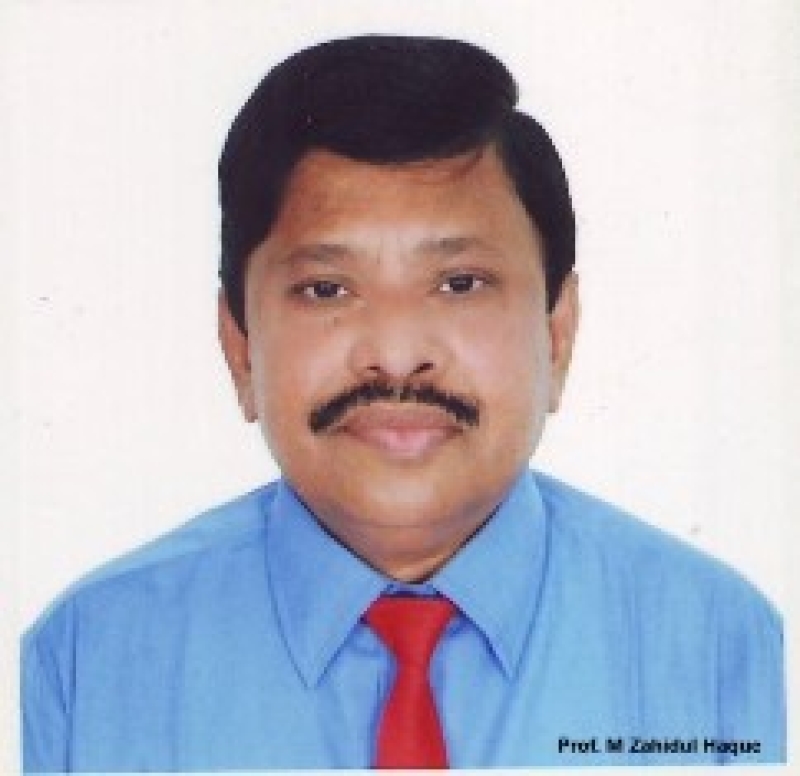- CEC Vows Credible Election to End Stigma |
- High-level meeting reviews country’s economic progress |
- Dhaka suspends visa, consular services at its Delhi, Agartala Missions |
- Govt to cut savings certificate profit rates from January |
- Gold prices hit fresh record in Bangladesh within 24 hours |
COP29: The Three-Zero Formula of Dr. Yunus

Prof. M Zahidul Haque .
Prof. M Zahidul Haque
May be, to US President Donald Trump, climate change is an issue of skepticism. He is a denier of Climate Change; he frequently refers the science of climate change – a ‘hoax’. He is not ready to believe that human activities are the primary drivers of global warming.
Whether or not Donald Trump endorses the climate science but climate change is a hard reality which is causing a serious havoc on the Earth and its environment contributing to economic challenges and human suffering. So, urgent and well-coordinated climate action is required to controlling the devastating impacts of climate change on humans and their livelihood.
Emphasizing the importance of taking immediate climate action, Bangladesh Interim Government’s Chief Advisor Prof. Dr. Muhammad Yunus in his speech at the 29 th Conference of Parties (COP) summit in Baku, Azerbaijan put forwarded a pragmatic formula called "Three Zero" for combating the global
climate crisis. The approach emphasizes three interconnected goals: zero net carbon emissions, zero wealth concentration, and zero unemployment. His proposal is not merely environmental but a holistic framework for creating a sustainable and equitable world.
Key Ideas from Dr. Yunus's Speech at COP29: The key ideas given by Dr. Yunus’s formula contains the following three zeros:
1. Zero Net Carbon Emissions: Dr. Yunus advocates for a lifestyle shift away from fossil fuels towards renewable energy, urging societies to adopt carbon-neutral habits. This entails not only technological advancements but also cultural and economic changes to prioritize sustainability.
2. Zero Wealth Concentration: He called for an economy centered on social businesses, which are non-dividend enterprises aimed at addressing social and environmental challenges. These businesses, he argued, could reduce economic inequality and encourage a focus on community well-being over personal profit.
3. Zero Unemployment: Dr. Yunus stressed the need to nurture entrepreneurial education, particularly among the youth, to empower individuals to create their own opportunities. This shift, he argued, would replace the conventional education system geared toward producing job-seekers with one that fosters job creators.
Dr. Yunus’s Three-Zero formula has great potentialities to combating climate change impacts but it has challenges too.
The potentialities include:
--The focus on renewable energy and carbon neutrality is essential for addressing the climate crisis.
--Social businesses provide a practical mechanism for reducing inequality and promoting sustainable development.
--Emphasis on youth and entrepreneurship resonates with the demographic most affected by and capable of solving these challenges.
The challenges towards implementing the formula are:
--Implementing these ideas requires extensive global cooperation, which has proven difficult, as evidenced by the ongoing debates at COP29 over climate financing.
--Transitioning to a carbon-neutral lifestyle and a social business-driven economy will necessitate overcoming entrenched corporate and political interests.
--While inspiring, the formula’s feasibility on a global scale, especially in developing countries with limited resources, remains a significant hurdle.
Conclusion
The "Three Zero" formula represents a transformative vision for addressing the interconnected crises of climate change, economic inequality, and unemployment. Its emphasis on renewable energy, social businesses, and entrepreneurial education provides a holistic framework for sustainable development. While the approach has some potential challenges, such as the need for global cooperation and overcoming entrenched interests, it offers a powerful roadmap for creating a fairer, greener, and more resilient world. By embracing this pragmatic formula, societies can work towards a future that prioritizes equity, innovation, and environmental stewardship, ensuring a livable planet for generations to come. It is sincerely expected that all the countries of the World under the COP—the UN Framework on Climate Change will work together to implementing Dr. Yunus’s Three-Zero formula for combating climate change impacts. Meanwhile this author honestly feels that the US President Donald Trump will ultimately appreciate the scientifically proven climate change facts and move his administration towards positive climate actions.
(Prof. M Zahidul Haque is a former Professor and Dean of Faculty of Agriculture, Sher-e-Bangla Agricultural University, Dhaka and regular contributor to GREENWATCH, Dhaka.)

